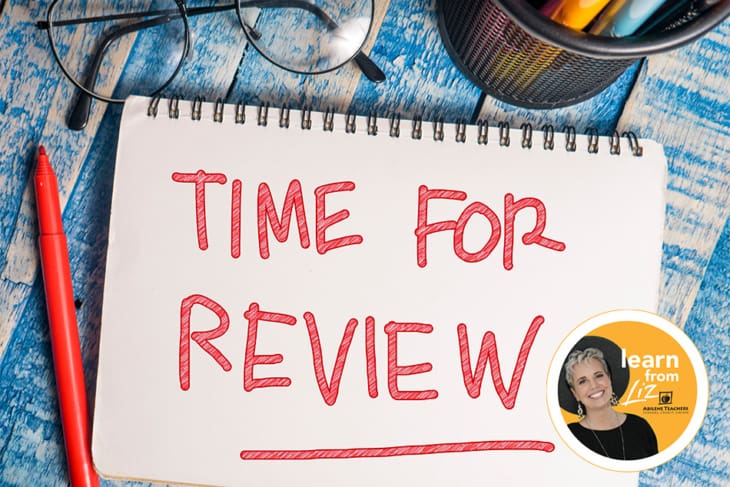12 Steps to Financial Wellness – Step 12: Review and Tweak

Congratulations!
You’ve reached the 12th and final step of the 12 steps to financial wellness. In this step, we’ll review each of the previous steps and adjust this part of your financial health as necessary.
Are you being responsible in tracking your spending? You can do this with a budgeting app, by keeping a running estimate of how much you’re spending in each category in your head, or by reviewing your receipts and checking account statements at the end of each month. Knowing where your money is going will help you make more responsible spending decisions in the future. If you cannot commit to doing this every month, at least try to track your spending every quarter. When you put it off for months on end it can be very overwhelming and take more time to get everything in order again.
Step 2: Create and stick to a budget
Budgets need to be reviewed and tweaked every few months or so to ensure they still work for your present life circumstances. Fluctuations in consumer prices, your income and various life expenses need to be accounted for in your budget. If your budget no longer works for you, make some changes until it does again. I know for my family, our grocery budget has increased immensely over the past year. I have two teen boys living at home and MAN!! I left WalMart last night with not even a full basket of groceries (for the week) and I paid over $250. If you have been budgeting $175 to $200 a week for groceries and are now spending $50+ over that, you should sit down and adjust your numbers!
Take a minute to review where you are in your debt-paying journey. Have you made as much progress as you’d hoped to at this point in time? Can you beef up any payments and make that debt disappear sooner? Check out this Debt Coach to see if the debt snowball or avalanche method would work best for you.
Step 4: Talk money with your partner
Have you had the big money talk with your partner? Are you remembering to touch base on money matters on a regular basis? Do you need to revisit any of the topics you’ve discussed, such as sharing accounts, dividing expenses and saving up for a shared dream? Man, oh man. If we are being honest…. this is the hardest step for me to follow. I am so used to just doing it all and tending to it all myself and Juston wants to know how things are looking but it makes me so uncomfortable. What if he doesn’t like where we are financially? Then it will be all my fault because I am the one that has been in charge of this for so long. I know that he wouldn’t act like that, but in my mind that is how it plays out. UGH. I can do better! We can do better!
Review some of your recent purchases. Are you blowing money on stuff you don’t need instead of relieving stress and emotional overload in a healthy manner? If so, look for better ways to de-stress and remember to avoid temptation by disabling one-click purchases and staying away from stores that trigger your overspending impulse. Or in my case, stop watching Instagram influencers with all their discount codes and all the things they are “obsessed” with!
The money, time and smiles we share are the only moments that are truly ours. Are you remembering to pay it forward? You can volunteer at a soup kitchen or homeless shelter, donate clothing to the less fortunate and help your favorite charity. Abilene has so many amazing organizations ready and willing to help those in need and they can always use a helping hand. If you do not have funds to give, give your time and smiles. We are blessed to be a blessing to those around us. Find what you are passionate about and volunteer in that area.
Are you remembering to feed your savings? Remember to prioritize having an emergency fund with three to six months’ worth of living expenses. Once you have that funded, you can work on saving toward long- and other short-term saving goals by automating a monthly transfer from your checking account to your savings account. At this time, you may want to consider increasing the amount you are putting into savings each month by trimming some discretionary expenses. If an emergency fund with three to six months worth of savings is too overwhelming to think about, make a goal to save $500-$1000 first. Once you get there, up it again by another $500-$1000. Choosing smaller, incremental goats can sometimes set you up for success because you don’t feel defeated before you even start.
Step 8: Know when and how to indulge
Living a life without any indulgences can make you lose your budget (and mind) fast! Instead, make sure you know when and how to indulge. If you do not let yourself indulge every now and then, the likelihood of overindulging is highly probable. Are you remembering to work your selected just-for-fun expenses into your budget so you can indulge without the guilt? Now is a good time to look back at your indulgences to figure out if they were good uses for your money.
Step 9: Check your credit score
How are those three magic numbers doing? If you’ve been following the rules for boosting and maintaining a high credit score, like paying your bills on time, having several active cards and keeping your credit utilization low, your score should have improved during these last few months, opening the door to low-interest loans and more. You can always sign-up for Credit Score & More in your online banking to track your credit and learn what you need to do to increase your score.
Step 10: Think about retirement
Have you opened and furnished retirement accounts at work and beyond? Take the time now to review these accounts and to assess whether your funds have reached the place you’d hoped they would by now. 2024 has been very kind to most of these accounts BUT don’t assume that every year will look the same.
Have you taken the beginning steps toward investing? A crucial part of successful investing is reviewing your portfolio on a regular basis and adjusting as necessary. Make sure your investments are performing well and that your assets are diversified in the most optimal way.
Step 12: Review your overall financial health
In this final step, you’ll review your financial health on a regular basis, just as you’ve done here. Don’t forget to maintain each component of your financial wellness to keep it in top shape.
Reviewing your financial health on a regular basis is an important part of staying financially fit.


